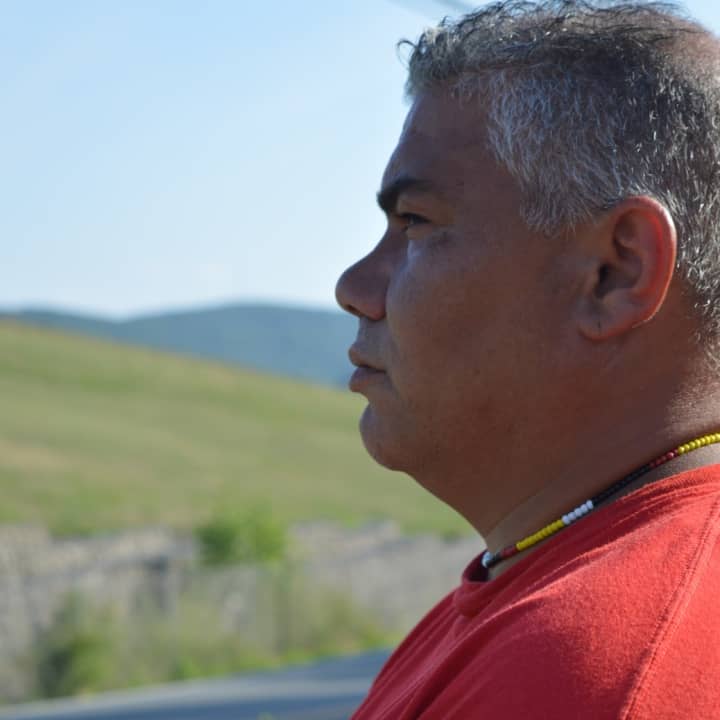There used to be more than 80 homes in their neighborhood next to a Ford Motor Company Superfund site in Upper Ringwood.
“Now there are 47 homes and 140 souls living there,” Mann said.
“Hundreds have died,” he added, “but hundreds have left in search of a better life for their children. One 10-year-old boy was diagnosed with two rare cancers.”
New Jersey has recognized the Ramapoughs as a band of the Munsee — Native American Lenapes who settled in North Jersey thousands of years ago.
Theirs has been a long story, starting with the taking of lands in the 18th century, racial prejudice and the separation of the people.
Mann, 47, finds himself chief during a disturbing 60-year chapter in the history of the Ramapough. Their lands and water, he said, have been contaminated by toxic paint sludge dumped by Ford in the mountains of Upper Ringwood and lower Rockland County.
The Ford plant operated on what is now International Crossroad in Mahwah from 1955 to 1980.
Thursday, Mann looked out over the mountains from the front lawn of the Saltbox Environmental Research Center in Hillburn, New York. The place, dedicated to environmental research, sits on another Ford sludge site that has been almost completely remediated.
“People come from everywhere to visit these beautiful mountains without knowing what has happened here,” he said. “There have been so many deaths. A lot of our culture has been stripped from us. We don’t have the elders we used to have.”
It used to be common for a Ramapough to live past 100, he said. Today, there are some in their eighties.
Mann, whose grandfather also was a Ramapough chief, has a twofold agenda.
The first is to see the complete excavation of the Upper Ringwood Superfund site and a water filtration system installed.
“It’s a 500-acre site,” Mann said. “To this day, only 60,000 tons have been removed.”
Along with others, he wants all 166,000 tons dug up and carted away, as opposed to the plan currently in place: capping the O’Connor Disposal Area, off Peters Mine Road, and building a recycling center atop it.
In response to a public petition, the Ringwood council will hold an Aug. 2 public hearing on removing the soil. If it votes down removal, the matter will go to public referendum in November.
To hearten the people, the chief is planning a 2017 “Gathering in the Homelands.” All New Jersey Ramapoughs are invited, including the Wolf Clan from Mahwah and the Deer Clan from Hillburn – as well as Lenapes that long ago moved to distant points north and west.
The event will take place in Mahwah, an Indian word meaning “Meeting Place.”
Click here to follow Daily Voice North Passaic and receive free news updates.




